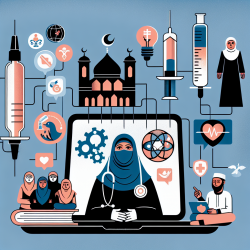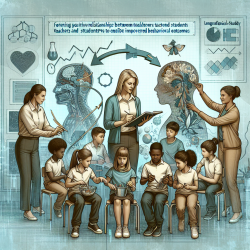Vaccine hesitancy remains a significant public health challenge, particularly in Muslim communities where religious beliefs can heavily influence health decisions. The research article "Vaccine hesitancy within the Muslim community: Islamic faith and public health perspectives" provides valuable insights that online therapists can use to improve their practice and better support their clients.
Key Findings from the Research
The study identifies several factors contributing to vaccine hesitancy in Muslim communities:
- Religious Concerns: Many Muslims are hesitant about vaccines containing non-halal components or those perceived as interfering with divine will.
- Influence of Religious Leaders: Religious leaders play a crucial role in shaping public opinion and can significantly impact vaccine acceptance.
- Misinformation: Misinformation and conspiracy theories, often spread through social media, exacerbate vaccine hesitancy.
Strategies for Online Therapists
To address these issues, online therapists can adopt several strategies:
Engage with Religious Leaders
Engaging religious leaders in conversations about vaccination can help mitigate hesitancy. Religious leaders who understand and support vaccination can use their influence to encourage community members to get vaccinated.
Provide Accurate Information
Ensure that clients receive accurate and reliable information about vaccines. Counteract misinformation by sharing evidence-based resources and clarifying common misconceptions.
Understand Religious Beliefs
Understanding the religious context is crucial. For example, the concept of "preservation of life" in Islamic law supports vaccination. Highlighting these religious principles can help clients reconcile their faith with public health recommendations.
Use Culturally Sensitive Communication
Tailor communication strategies to be culturally sensitive. Use language and examples that resonate with the client's cultural and religious background.
Encouraging Further Research
The research underscores the need for ongoing study into the interplay between religious beliefs and public health. Therapists should stay informed about new findings and consider participating in or supporting research efforts.To read the original research paper, please follow this link:
Vaccine hesitancy within the Muslim community: Islamic faith and public health perspectives.










